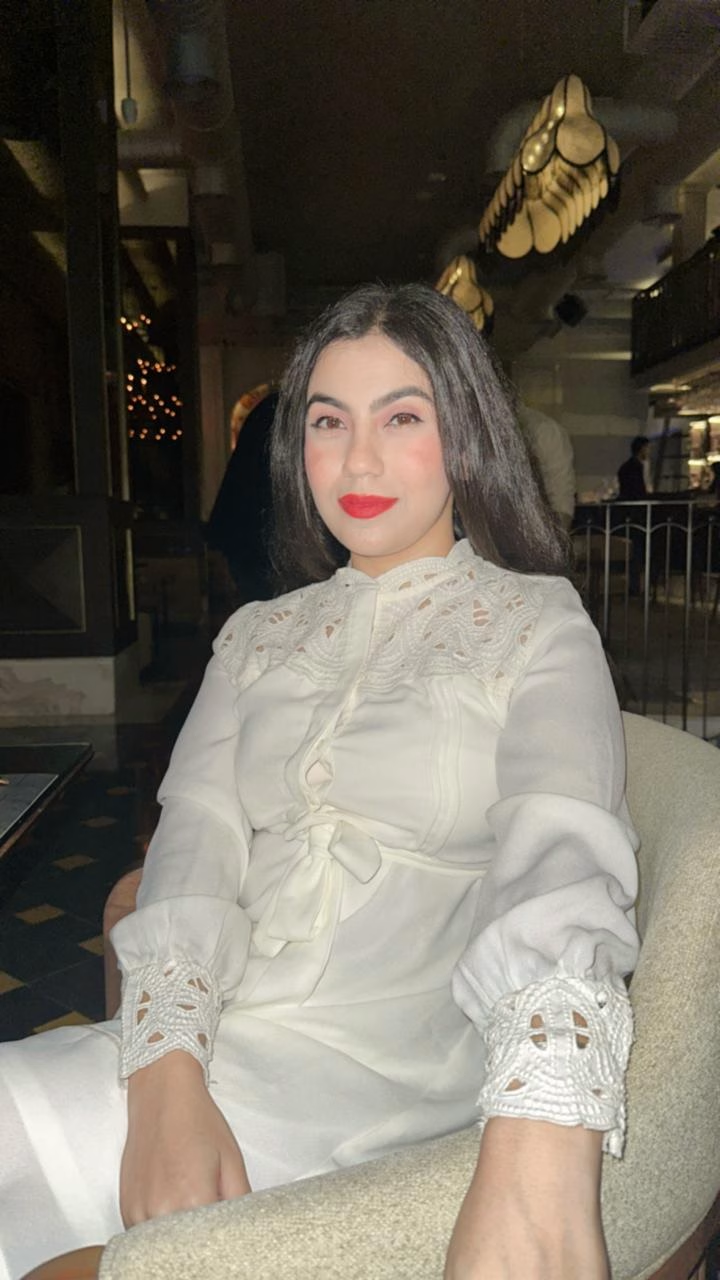“I never imagined I’d Google this phrase: ‘My husband cheated on me.’ But there I was…”
Staring at the screen, numb. My heart wasn’t just broken – it was suspended, caught between disbelief and a flood of questions I didn’t know how to answer.
Infidelity doesn’t just shake up the foundation of the relationship – it pulls apart the pieces of your identity that once felt safe wrapped up in theirs. It echoes through every memory, suddenly haunting – even the good ones now feel like strangers. If you’ve landed here, chances are your heart is aching, your mind is spinning, and you’re just trying to make sense of what’s happened. You’re not alone, and this can be your starting point.
With this blog, I am not here to tell you what to do. I’m not here to fix you – I’m here to walk with you. And I know this road doesn’t just feel bumpy… it might feel completely blocked. Like you don’t even have the strength to take a single step forward.
If that’s where you are right now, I want you to know: even standing still in this moment takes courage.
Understanding the Emotional Impact of Infidelity
Nothing prepares you for this kind of pain. There was a time – not long before everything broke – when life finally felt aligned. My marriage, my sense of self, our rhythm as a family… it all felt like it was starting to make sense.
Like I was finally finding my footing.
And then it collapsed.
And I couldn’t help but wonder – Was any of it ever real?
And here’s what makes it even more painful – As humans, we aren’t wired to regulate our emotions in isolation. We regulate through connection. Through co-regulation.
Emotionally Focused Therapy (EFT) teaches us something profound – that when we’re in distress, we instinctively reach out to our loved one for comfort, for grounding, for safety.
But what happens when the very person we once turned to for comfort becomes the source of pain? When your partner, who used to be your anchor, now feels like a stranger?
You might lash out. You might shut down. You might find yourself saying things you don’t mean, or saying nothing at all.
And not because you’ve stopped caring, but because you don’t know how to say:
“I need you to help me feel safe again.”
“I don’t know how to hold this pain alone.”
“I still want you, even now, but I don’t know how to reach you.”
Beneath all the chaos, the anger, the silence, the distance – there’s still love. There’s still longing.
There’s still that vulnerable cry: “Please, don’t leave me in this pain alone. Please…”
What you’re feeling isn’t too much. It’s the aching call of a heart built for connection, reaching out in the absence of safety – like a child calling out in the dark, hoping someone will turn the light back on. You’re not overreacting. You’re responding, just as anyone would, when love suddenly feels far away.

I Did Everything Right… So Why Did This Still Happen?
“There weren’t any major fights. Nothing seemed broken. I gave everything I had to this relationship. So why did this still happen?”
It’s one of the most painful and disorienting questions to ask, and one that lingers in the silence that follows the truth. Sometimes, there’s a trail of reasons that seem to add up. And sometimes… there’s nothing that makes it easier to understand.
Maybe there was emotional distance that was never named. Maybe unspoken needs piled up quietly over time. Maybe they were looking for comfort, for escape, or for something that felt missing – even if they couldn’t put it into words. And sometimes, it simply came down to a choice – intentional or unconscious – that led them outside the boundaries of trust.
Not because of what you lacked. Not because of what you did or didn’t do. But because something within them moved in a direction they didn’t know how to bring into the relationship.
There isn’t always a single, satisfying explanation. And that absence of clarity can feel like a second betrayal in itself. But this much is true: What happened is not a reflection of your worth. It’s not proof that you weren’t enough. And it’s not yours to carry alone.
Sometimes, healing starts by accepting that even without all the answers, you are allowed to grieve what was lost – and reclaim what still belongs to you.
Stay or Leave? Only You Can Decide – But I’ll Hold the Space While You Do
As a therapist, I can’t decide for you. I won’t tell you to stay or to walk away – because what’s right for you isn’t mine to define.
What I can do is hold space. A space where you can begin to explore what really happened. Where you can gently unpack how it made you feel – not just on the surface, but in the quiet moments you cried alone, in the longing you couldn’t voice, in the places where you still feel unseen.
Together, we can sit with the unmet needs, the unspoken hurts, the ache beneath the anger. We can reflect on what safety looks like for you now, and what would feel like truth, not pressure.
Because healing doesn’t start with answers. It starts with awareness. And you deserve to come home to yourself before making any decision that carries your heart.
Things to Reflect On Before You Decide
You don’t need to rush this process. But when you feel ready, here are some questions you might sit with – in stillness, in journaling, or in therapy:
- What am I feeling beneath the anger, beneath the shock? (And what parts of me still feel unheard?)
- Have I felt emotionally safe in this relationship – before the betrayal and now?
- Do I see signs of genuine remorse and accountability, or am I the only one doing the work?
- What would staying require from me – emotionally, mentally, relationally?
- If I chose to walk away, what would I be grieving? And what would I be reclaiming?
- Is rebuilding something I truly want – or something I feel I should want?
- What does “healing” look like for me – with or without this relationship?
You don’t have to answer these all at once. Healing isn’t a straight line, and clarity often comes in layers. Let this be a quiet invitation – not a demand – to begin turning inward with compassion.
And if you find yourself feeling overwhelmed, unsure, or simply in need of someone to walk beside you through these questions – know that support exists.
At Alumaura, we offer a warm, non-judgmental space to explore these emotions, reflect on your needs, and slowly rebuild what feels true for you. Whether you come alone or with your partner, therapy can help you move from confusion to clarity – at your own pace, in your own way.
You don’t have to figure this out alone.
Healing After Infidelity: Rebuilding Yourself First
“I still love you. But right now… I need to ask myself – do I love myself enough to love you again the way I once did?”
Rebuilding yourself after betrayal doesn’t begin with answers. It begins with permission – to feel everything.
From the rage that rises in your chest,
to the disbelief that knocks the air out of your lungs,
to the ache that whispers: “How could you do this to me?”
It’s all valid. It’s all part of the storm.
But there comes a moment – sometimes quietly, sometimes after countless breakdowns – when you no longer want to chase answers.
You just want to sit still. Not to give up… but to feel like yourself again.
To say: “Right now, I don’t want to fight. I want to feel.”
“I want to mourn not just what I lost – but what it took from me.”
And that’s where the healing truly begins.
Not in deciding whether to stay or leave.
Not in fixing the relationship overnight.
But in asking: “How can I mourn for myself? How can I rebuild the parts of me that were quiet for too long?”
And let me say this clearly:
That is not selfish. That is sacred.
You may hear voices around you –
Family or friends who say things like:
“Why can’t you just forgive him?”
“He’s already said sorry – how much more time do you need?”
“He did his part… now it’s on you to make things right.”
“You have to save this marriage – that’s your responsibility now.”
They don’t always understand what space means. They mistake healing for delay. They view your silence as stubbornness. They frame your boundaries as resistance – as if your pain is something that needs to be “handled” instead of held.
And in those moments – when you hoped someone might simply sit with your ache – you find yourself shrinking away. Not because you want distance, but because you’re exhausted from defending your grief.
You never asked for this. You didn’t cause this rupture. But now you’re being handed the weight of restoring what someone else broke – as if your healing is a burden that needs to be fast-tracked to keep the peace.
You don’t desire pity. You don’t even expect perfect understanding. But somewhere inside, you still hope, hope that someone might recognize the depth of what you’re holding, without asking you to carry it all alone.
And if all you did today was breathe through the weight of it – that is enough. You are a human being learning how to live again after trust was broken.
Even now – in the ache, in the silence, in the not-knowing – you are worthy of love, of clarity, and of coming home to yourself.
One breath, one boundary, one truth at a time. You’re already on your way.

Frequently Asked Questions (FAQs)
1. Can a relationship survive cheating?
Ans. Yes. But not without honesty, accountability, and a deep willingness to repair what was broken. Surviving infidelity isn’t just about staying together. It’s about doing the inner and relational work that helps both partners feel safe, seen, and emotionally connected again. And that work can’t be one-sided – healing requires willingness from both people. One partner can’t carry the weight of rebuilding alone.
For some, this journey leads to a deeper and more conscious relationship. For others, it becomes a path to honoring what they’ve outgrown. Whether you stay or leave, what matters most is that your healing comes from a place of clarity, not pressure.
2. How do I know if my husband is truly remorseful?
Ans. Remorse shows up in actions, not just apologies.
You might notice he’s not defensive, that he listens to your pain without rushing you through it. That he’s willing to take accountability, not only for what happened, but for how it impacted you. True remorse also includes a commitment to transparency, a desire to rebuild trust (not demand it), and a deep emotional presence, even when things feel uncomfortable.
You don’t have to figure out everything at once. Let your nervous system, not just your mind, guide what feels safe and trustworthy again.
3. Should I tell my children or family?
This is a deeply personal decision, and there is no universal “right” answer.
If you’re considering telling children, especially young ones, it’s important to protect their emotional world and only share age-appropriate information that doesn’t place blame or confusion on them. With family, ask yourself: Will this bring me support or more emotional pressure?
Sometimes, we share to be heard. Other times, we choose privacy to preserve our peace. What matters most is that you’re choosing based on your emotional needs, not others’ expectations.
4. How long does it take to heal from infidelity?
Ans. There’s no fixed timeline because healing doesn’t follow a schedule.
Even if your partner is showing remorse, even if they’re trying to reconnect, you may still feel distant, guarded, or unsure, and that is completely okay. Healing isn’t about how much time has passed. It’s about how gently you’ve allowed yourself to feel, grieve, and rebuild.
Some days, you might feel like you’re making progress. On others, an old memory might hit you like a wave and bring all the hurt back. That doesn’t mean you’re going backwards – it means you’re human.
Take the time your heart needs. Not to rush through it, but to move through it with care. Healing is allowed to take its time, and so are you.
f you’re navigating this path and finding it hard to hold all the emotions on your own, please know you don’t have to.
Whether you’re seeking clarity, connection, or simply someone to talk to, we’re here.

Divya Chadha is the founder of Alumaura and a counseling psychologist with a Master’s in Counseling Psychology. She specializes in individual, marital, and pre-marital therapy, and is certified in the Gottman Method (Level 1) and Emotionally Focused Therapy (EFT). With years of experience, Divya is deeply committed to helping individuals and couples heal, grow, and create emotionally fulfilling relationships.

